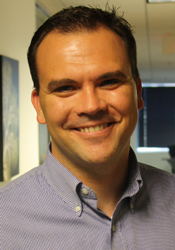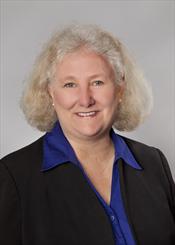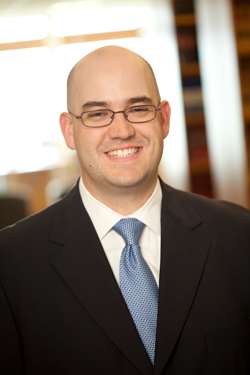Who Draws the Lines? Will the Supreme Court Strike Down Independent Redistricting Commissions?
Monday, April 6, 2015
MMC Athenaeum, Claremont McKenna College
Lunch served at 11:30 a.m. Presentation starts at 12:00 p.m.
The Elections Clause of the United States Constitution provides that the “Times, Places and Manner of holding Elections for Senators and Representatives, shall be prescribed in each State by the Legislature thereof; but the Congress may at any time by Law make or alter such Regulations, except as to the Places of chusing Senators.” The voters of Arizona and California, however, have used the initiative process to take responsibility for drawing new congressional districts from the state legislatures and given it instead to independent redistricting commissions. Many in these states view the commissions as a solution to a problem of partisan gerrymandering, where political parties in control of the legislature adopt maps that allow them safer districts and more seats.
On March 2, 2015 the Supreme Court heard Arizona State Legislature v. Arizona Independent Redistricting Commission, a case challenging the use of independent redistricting commissions to draw congressional district boundaries. The Supreme Court’s resolution of that case may also govern the fate of California’s redistricting commission. Peter A. Gentala, counsel to the Arizona House of Representatives, and Mary O’Grady P’15, counsel to the Arizona Independent Redistricting Commission, will discuss the constitutional authority of independent redistricting commissions and analyze the arguments before the Supreme Court. Christopher Skinnell ’99, of Nielsen Merksamer Parrinello Gross & Leoni LLP, will moderate the discussion.
 Peter Gentala is the General Counsel of the Arizona House of Representatives. He advises the Leadership of the House and serves as the Policy Advisor to the House Judiciary, Elections, and Rules Committees. Gentala is also a Faculty Associate at Arizona State University where he teaches criminal law and constitutional criminal procedure in the ASU School of Criminology and Criminal Justice. Gentala regularly represents the Speaker of the House in litigation and has participated in numerous lawsuits posing difficult state and federal constitutional questions in areas such as elections, education and healthcare funding, pension reform, the separation of powers, the Freedom of Speech, the Freedom of Religion, and redistricting. Before joining the staff of the House of Representatives, he worked at both the Center for Arizona Policy and the Alliance Defending Freedom, where he specialized in constitutional litigation. Gentala is a native of Tucson, Arizona. He has a J.D. and Master’s Degree in Public Policy from Regent University. In 2012, Gentala filed a lawsuit on behalf of the Arizona State Legislature challenging Arizona’s Proposition 106 as a violation of the Elections Clause of the U.S. Constitution. That suit is now pending on appeal in the Supreme Court of the United States. Oral argument was held on March 2, 2015.
Peter Gentala is the General Counsel of the Arizona House of Representatives. He advises the Leadership of the House and serves as the Policy Advisor to the House Judiciary, Elections, and Rules Committees. Gentala is also a Faculty Associate at Arizona State University where he teaches criminal law and constitutional criminal procedure in the ASU School of Criminology and Criminal Justice. Gentala regularly represents the Speaker of the House in litigation and has participated in numerous lawsuits posing difficult state and federal constitutional questions in areas such as elections, education and healthcare funding, pension reform, the separation of powers, the Freedom of Speech, the Freedom of Religion, and redistricting. Before joining the staff of the House of Representatives, he worked at both the Center for Arizona Policy and the Alliance Defending Freedom, where he specialized in constitutional litigation. Gentala is a native of Tucson, Arizona. He has a J.D. and Master’s Degree in Public Policy from Regent University. In 2012, Gentala filed a lawsuit on behalf of the Arizona State Legislature challenging Arizona’s Proposition 106 as a violation of the Elections Clause of the U.S. Constitution. That suit is now pending on appeal in the Supreme Court of the United States. Oral argument was held on March 2, 2015.
 Mary O’Grady P’15, is a partner at Osborn Maledon in Phoenix, Arizona. Her practice focuses on appeals, civil litigation and administrative law. O’Grady was the longest-serving Solicitor General for the State of Arizona and has a unique breadth of experience with public law issues. She has represented the State of Arizona and public officials in a variety of complex, high profile lawsuits and appeals in state and federal court. Her work has included ten cases that the U.S Supreme Court heard on the merits. O’Grady’s areas of expertise include election and campaign finance law, the Voting Rights Act, State constitutional law, government contracts, state legislation, open meeting and public records laws, redistricting and school finance. She has also worked extensively in the area of tribal-state relations, with a particular focus on tribal-state agreements. O’Grady is a graduate of Arizona State University and the University of California Santa Barbara.
Mary O’Grady P’15, is a partner at Osborn Maledon in Phoenix, Arizona. Her practice focuses on appeals, civil litigation and administrative law. O’Grady was the longest-serving Solicitor General for the State of Arizona and has a unique breadth of experience with public law issues. She has represented the State of Arizona and public officials in a variety of complex, high profile lawsuits and appeals in state and federal court. Her work has included ten cases that the U.S Supreme Court heard on the merits. O’Grady’s areas of expertise include election and campaign finance law, the Voting Rights Act, State constitutional law, government contracts, state legislation, open meeting and public records laws, redistricting and school finance. She has also worked extensively in the area of tribal-state relations, with a particular focus on tribal-state agreements. O’Grady is a graduate of Arizona State University and the University of California Santa Barbara.
 Christopher Skinnell ’99 is a partner at Nielsen Merksamer practicing law and civil litigation relating to elections, state and local initiative and referenda, redistricting and voting rights, campaign finance, tribal gaming, and general constitutional and government law matters. He is a 1999 graduate of Claremont McKenna College, where he was a research associate at the Rose Institute, and the University of Chicago Law School. Skinnell has published articles and written extensively on voting rights and redistricting, California political demographics, campaign finance and ethics compliance, and Native American issues, and has been a guest lecturer on redistricting issues at Claremont McKenna College.
Christopher Skinnell ’99 is a partner at Nielsen Merksamer practicing law and civil litigation relating to elections, state and local initiative and referenda, redistricting and voting rights, campaign finance, tribal gaming, and general constitutional and government law matters. He is a 1999 graduate of Claremont McKenna College, where he was a research associate at the Rose Institute, and the University of Chicago Law School. Skinnell has published articles and written extensively on voting rights and redistricting, California political demographics, campaign finance and ethics compliance, and Native American issues, and has been a guest lecturer on redistricting issues at Claremont McKenna College.


Sorry, comments are closed for this post.